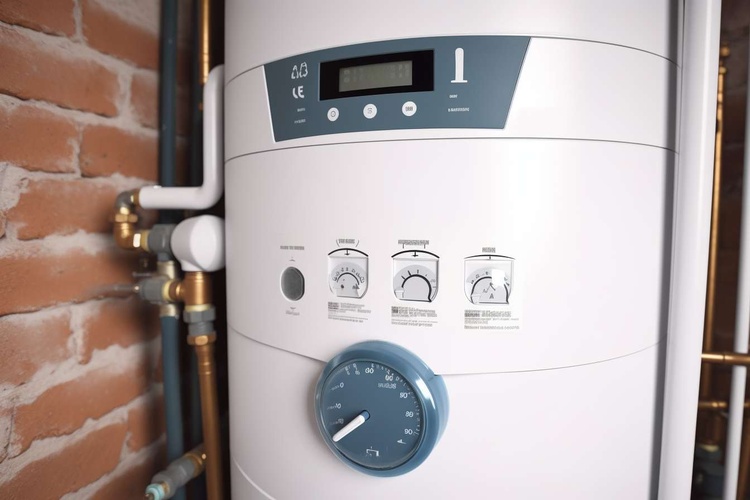2025 UK Boiler Grants: A Homeowner’s Guide to Energy Efficiency and Savings
Boiler Grants in the UK: An Overview for 2025 As the demand for energy-efficient heating solutions continues to increase, the UK government and various organizations have introduced programs aimed at easing the financial burden of upgrading heating systems. Among these efforts are the widely discussed boiler replacement grants, which are crucial for helping homeowners improve their energy efficiency, reduce carbon footprints, and cut down on energy bills. These grants have become particularly significant as the world shifts towards more sustainable energy solutions.

Government funding schemes in 2025 continue to support UK homeowners seeking to improve their home heating systems and reduce energy consumption. These initiatives aim to help households transition to more efficient heating solutions while addressing rising energy costs and environmental concerns.
Boiler Upgrades for UK Homes: Available Funding Options
The Energy Company Obligation (ECO4) scheme remains a primary funding source for eligible households, providing grants for boiler replacements and heating system improvements. Local authorities also offer additional support through various regional programmes, with funding amounts varying based on location and household circumstances.
Eligibility typically depends on factors including property type, current heating system efficiency, household income, and benefit status. Properties with older, inefficient boilers often qualify for higher levels of support, particularly those rated below Band D on Energy Performance Certificates.
Cut Heating Bills with Government Aid: Understanding Eligibility
Households receiving certain benefits, including Universal Credit, Pension Credit, or Child Tax Credits, may qualify for enhanced support levels. Owner-occupiers and private tenants can both access funding, though landlords may need separate permissions for rental properties.
Income thresholds vary by region and scheme type. Some programmes focus specifically on vulnerable households, elderly residents, or families with young children. Local authority schemes may have additional criteria based on property age, construction type, or energy efficiency ratings.
Boost Efficiency with Boiler Grants: Application Process
Applications typically begin with an energy assessment conducted by approved installers or local authority representatives. This evaluation determines current system efficiency, potential improvements, and appropriate funding levels.
Documentation requirements include proof of income, benefit statements, property ownership evidence, and current energy bills. Processing times range from several weeks to several months, depending on scheme demand and local authority resources.
Sustainable Heating Solutions for 2025: Technology Options
Grant programmes support various heating technologies beyond traditional gas boilers. Heat pumps, biomass systems, and high-efficiency condensing boilers all qualify under different schemes. Solar thermal systems and improved insulation may also receive funding as part of comprehensive energy efficiency packages.
Each technology offers different benefits and installation requirements. Heat pumps work effectively in well-insulated properties, while biomass systems suit rural locations with space for fuel storage. High-efficiency gas boilers provide immediate improvements for properties connected to mains gas supplies.
Eco-Friendly Boiler Options: Cost Considerations and Provider Comparison
Installation costs vary significantly based on system type, property requirements, and regional pricing differences. Understanding typical cost ranges helps homeowners plan effectively and maximise available funding.
| System Type | Typical Cost Range | Grant Coverage | Annual Savings |
|---|---|---|---|
| Condensing Gas Boiler | £2,000-£4,000 | Up to £3,000 | £200-£400 |
| Air Source Heat Pump | £8,000-£15,000 | Up to £7,500 | £300-£600 |
| Ground Source Heat Pump | £15,000-£25,000 | Up to £7,500 | £500-£800 |
| Biomass Boiler | £10,000-£20,000 | Up to £6,000 | £400-£700 |
Prices, rates, or cost estimates mentioned in this article are based on the latest available information but may change over time. Independent research is advised before making financial decisions.
Maximising Energy Efficiency Beyond Heating Systems
Comprehensive energy efficiency improvements often deliver greater long-term benefits than heating system upgrades alone. Insulation improvements, window replacements, and smart heating controls can significantly enhance overall system performance.
Many grant programmes encourage whole-house approaches, providing additional funding for complementary measures. This integrated strategy maximises energy savings, improves comfort levels, and increases property values while reducing environmental impact.
Homeowners should consider their property’s specific characteristics, including age, construction type, and current efficiency levels when planning improvements. Professional energy assessments help identify the most cost-effective combination of measures for individual circumstances.
Government support for energy efficiency improvements reflects ongoing commitments to reducing carbon emissions and supporting household energy security. These programmes provide valuable opportunities for homeowners to improve their properties while managing costs effectively through available funding mechanisms.




